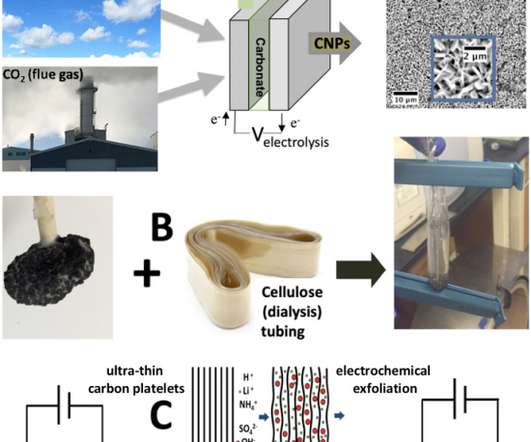Univ. of Surrey researchers to develop Li-CO2 battery technology
Green Car Congress
AUGUST 7, 2020
Researchers at the University of Surrey (UK) are to begin work on a new lithium-ion battery technology that is capable of capturing CO 2 emissions, following a £243,689 award from the Engineering and Physical Sciences Research Council (EPSRC). However, the development of Li-CO 2 batteries is still in its infancy stage.












Let's personalize your content